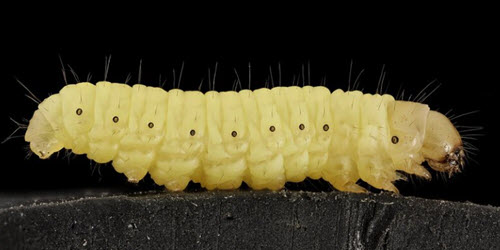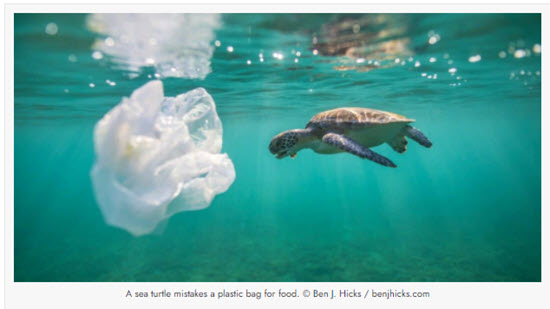Click below to listen to my 2 min. Garden Bite radio show: Worms that eat plastic?!
Audio PlayerYesterday, jumping worms. Today, worms that eat plastic. Talking with friends about how complicated it can seem to recycle plastics, they brought up how there were worms that eat plastic.

I had to investigate! Wax worms have been found to munch on plastic.

According to Earth.org, Polyethylene (PE) is a plastic derived from petroleum. It’s the most common plastic used for grocery bags to children’s toys and food packaging. PE satisfies approximately 40% of the total demand for plastic packaging and it’s non-biodegradable. It is only disposed of through incineration, chemical degradation and in landfills, all of which degrade the environment further.

From the article: By itself, PE takes hundreds of years to decompose depending on its form and use. For instance, a plastic bag can take up to 10 to 20 years to decompose, while plastic bottles can take 450 years. Even with chemical degradation, it takes several months to decompose. In a study, scientists found that 100 wax worms were able to biodegrade 92 milligrams of PE in 12 hours, or about 2.2 holes per hour per worm. The video below talks about mealworms and wax worms.
In 2018 the global market for PE was over $130 billion, it’s expected to reach $143 billion by 2026. So what’s the deal with wax worms? Wax worms feed on beeswax which is a polymer similar to polyethylene. The wax worms ability to break down the beeswax can apparently do the same thing with polyethylene, although not as nutritious to the wax worm, they don’t seem to care. And by the way, the wax worm is an UNWELCOME pest in bee hives. So if wax worms were released to eat PE, they might find the beehives leaving the bees decimated and the plastic still here.
In one study from Brandon University in Manitoba, Enzymes from the wax worms and their gut bacteria may be combined to develop a technology that may be used to degrade our plastic waste in the future. Further research is necessary.
But wait, there’s more. Another ongoing study finds that mealworms eat certain types of plastic, styrofoam to be specific.
